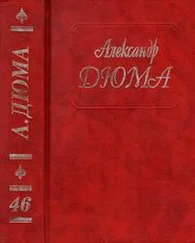Александр Дюма - The Conspirators
Здесь есть возможность читать онлайн «Александр Дюма - The Conspirators» весь текст электронной книги совершенно бесплатно (целиком полную версию без сокращений). В некоторых случаях можно слушать аудио, скачать через торрент в формате fb2 и присутствует краткое содержание. Год выпуска: 2014, Издательство: epubBooks Classics, Жанр: Историческая проза, на английском языке. Описание произведения, (предисловие) а так же отзывы посетителей доступны на портале библиотеки ЛибКат.
- Название:The Conspirators
- Автор:
- Издательство:epubBooks Classics
- Жанр:
- Год:2014
- ISBN:нет данных
- Рейтинг книги:3 / 5. Голосов: 1
-
Избранное:Добавить в избранное
- Отзывы:
-
Ваша оценка:
- 60
- 1
- 2
- 3
- 4
- 5
The Conspirators: краткое содержание, описание и аннотация
Предлагаем к чтению аннотацию, описание, краткое содержание или предисловие (зависит от того, что написал сам автор книги «The Conspirators»). Если вы не нашли необходимую информацию о книге — напишите в комментариях, мы постараемся отыскать её.
The Conspirators — читать онлайн бесплатно полную книгу (весь текст) целиком
Ниже представлен текст книги, разбитый по страницам. Система сохранения места последней прочитанной страницы, позволяет с удобством читать онлайн бесплатно книгу «The Conspirators», без необходимости каждый раз заново искать на чём Вы остановились. Поставьте закладку, и сможете в любой момент перейти на страницу, на которой закончили чтение.
Интервал:
Закладка:
Some time before the period of which we are writing, he met the Marquis de Pompadour, who was seeking a man of spirit and enterprise as the secretary of Madame de Maine. He told him to what the situation would expose him at the present time. Brigaud weighed for an instant the good and evil chances, and, as the former appeared to predominate, he accepted it.
Of these four men, D'Harmental only knew the Marquis de Pompadour, whom he had often met at the house of Monsieur de Courcillon, his son–in–law, a distant relation of the D'Harmentals.
When D'Harmental entered the room, Monsieur de Polignac, Monsieur de Malezieux, and Monsieur de Pompadour were standing talking at the fireplace, and the Abbe Brigaud was seated at a table classifying some papers.
"Gentlemen," said the Duchesse de Maine, "here is the brave champion of whom the Baron de Valef has spoken to us, and who has been brought here by your dear De Launay, Monsieur de Malezieux. If his name and antecedents are not sufficient to stand sponsor for him, I will answer for him personally."
"Presented thus by your highness," said Malezieux, "we shall see in him not only a companion, but a chief, whom we are ready to follow wherever he may lead."
"My dear D'Harmental," said the Marquis de Pompadour, extending his hand to him, "we were already relations, we are now almost brothers."
"Welcome, monsieur!" said the Cardinal de Polignac, in the unctuous tone habitual to him, and which contrasted so strangely with the coldness of his countenance.
The Abbe Brigaud raised his head with a movement resembling that of a serpent, and fixed on D'Harmental two little eyes, brilliant as those of the lynx.
"Gentlemen," said D'Harmental, after having answered each of them by a bow, "I am new and strange among you, and, above all, ignorant of what is passing, or in what manner I can serve you; but though my word has only been engaged to you for a few minutes, my devotion to your cause is of many years' standing. I beg you, therefore, to grant me the confidence so graciously claimed for me by her highness. All that I shall ask after that will be a speedy occasion to prove myself worthy of it."
"Well said!" cried the Duchesse de Maine; "commend me to a soldier for going straight to the point! No, Monsieur d'Harmental, we will have no secrets from you, and the opportunity you require, and which will place each of us in our proper position—"
"Excuse me, Madame la Duchesse," interrupted the cardinal, who was playing uneasily with his necktie, "but, from your manner, the chevalier will think that the affair is a conspiracy."
"And what is it then, cardinal?" asked the duchess, impatiently.
"It is," said the cardinal, "a council, secret, it is true, but in no degree reprehensible, in which we only seek a means of remedying the misfortunes of the state, and enlightening France on her true interests, by recalling the last will of the king, Louis XIV."
"Stay, cardinal!" said the duchess, stamping her foot; "you will kill me with impatience by your circumlocutions. Chevalier," continued she, addressing D'Harmental, "do not listen to his eminence, who at this moment, doubtless, is thinking of his Lucrece. If it had been a simple council, the talents of his eminence would soon have extricated us from our troubles, without the necessity of applying to you; but it is a bona fide conspiracy against the regent—a conspiracy which numbers the king of Spain, Cardinal Alberoni, the Duc de Maine, myself, the Marquis de Pompadour, Monsieur de Malezieux, l'Abbe Brigaud, Valef, yourself, the cardinal himself the president; and which will include half the parliament and three parts of France. This is the matter in hand, chevalier. Are you content, cardinal? Have I spoken clearly, gentlemen?"
"Madame—" murmured Malezieux, joining his hands before her with more devotion than he would have done before the Virgin.
"No, no; stop, Malezieux," said the duchess, "but the cardinal enrages me with his half–measures. Mon Dieu! are these eternal waverings worthy of a man? For myself, I do not ask a sword, I do not ask a dagger; give me but a nail, and I, a woman, and almost a dwarf, will go, like a new Jael, and drive it into the temple of this other Sisera. Then all will be finished; and, if I fail, no one but myself will be compromised."
Monsieur de Polignac sighed deeply; Pompadour burst out laughing; Malezieux tried to calm the duchess; and Brigaud bent his head, and went on writing as if he had heard nothing. As to D'Harmental, he would have kissed the hem of her dress, so superior was this woman, in his eyes, to the four men who surrounded her.
At this moment they heard the sound of a carriage, which drove into the courtyard and stopped at the door. The person expected was doubtless some one of importance, for there was an instant silence, and the Duchesse de Maine, in her impatience, went herself to open the door.
"Well?" asked she.
"He is here," said a voice, which D'Harmental recognized as that of the Bat.
"Enter, enter, prince," said the duchess; "we wait for you."
Chapter VI
The Prince De Cellamare
At this invitation there entered a tall, thin, grave man, with a sunburned complexion, who at a single glance took in everything in the room, animate and inanimate. The chevalier recognized the ambassador of their Catholic majesties, the Prince de Cellamare.
"Well, prince," asked the duchess, "what have you to tell us?"
"I have to tell you, madame," replied the prince, kissing her hand respectfully, and throwing his cloak on a chair, "that your highness had better change coachmen. I predict misfortune if you retain in your service the fellow who drove me here. He seems to me to be some one employed by the regent to break the necks of your highness and all your companions."
Every one began to laugh, and particularly the coachman himself, who, without ceremony, had entered behind the prince; and who, throwing his hat and cloak on a seat, showed himself a man of high bearing, from thirty–five to forty years old, with the lower part of his face hidden by a black handkerchief.
"Do you hear, my dear Laval, what the prince says of you?"
"Yes, yes," said Laval; "it is worth while to give him Montmorencies to be treated like that. Ah, M. le Prince, the first gentlemen in France are not good enough for your coachmen! Peste! you are difficult to please. Have you many coachmen at Naples who date from Robert the Strong?"
"What! is it you, my dear count?" said the prince, holding out his hand to him.
"Myself, prince! Madame la Duchesse sent away her coachman to keep Lent in his own family, and engaged me for this night. She thought it safer."
"And Madame la Duchesse did right," said the cardinal. "One cannot take too many precautions."
"Ah, your eminence," said Laval, "I should like to know if you would be of the same opinion after passing half the night on the box of a carriage, first to fetch M. d'Harmental from the opera ball, and then to take the prince from the Hotel Colbert."
"What!" said D'Harmental, "was it you, Monsieur le Comte, who had the goodness—"
"Yes, young man," replied Laval; "and I would have gone to the end of the world to bring you here, for I know you. You are a gallant gentleman; you were one of the first to enter Denain, and you took Albemarle. You were fortunate enough not to leave half your jaw there, as I did in Italy. You were right, for it would have been a further motive for taking away your regiment, which they have done, however."
"We will restore you that a hundredfold," said the duchess; "but now let us speak of Spain. Prince, you have news from Alberoni, Pompadour tells me."
"Yes, your highness."
"What are they?"
"Both good and bad. His majesty Philip V. is in one of his melancholy moods and will not determine upon anything. He will not believe in the treaty of the quadruple alliance."
Читать дальшеИнтервал:
Закладка:
Похожие книги на «The Conspirators»
Представляем Вашему вниманию похожие книги на «The Conspirators» списком для выбора. Мы отобрали схожую по названию и смыслу литературу в надежде предоставить читателям больше вариантов отыскать новые, интересные, ещё непрочитанные произведения.
Обсуждение, отзывы о книге «The Conspirators» и просто собственные мнения читателей. Оставьте ваши комментарии, напишите, что Вы думаете о произведении, его смысле или главных героях. Укажите что конкретно понравилось, а что нет, и почему Вы так считаете.












